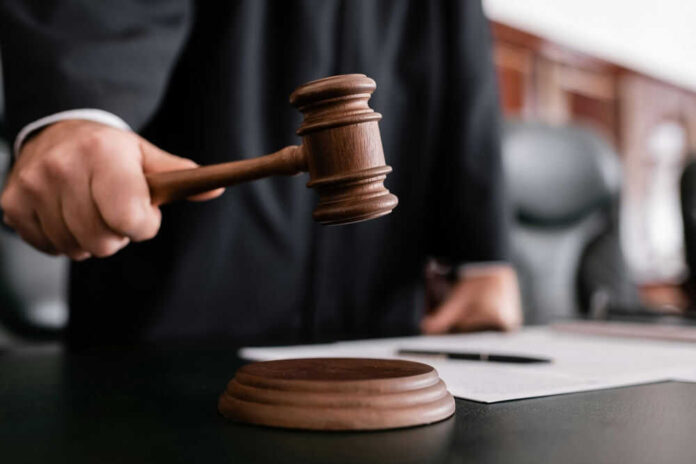
A Los Angeles judge has demanded prosecutors explain why the Menendez brothers’ infamous murder convictions shouldn’t be re-examined.
The judicial plot twist has ignited a fresh battle over whether justice was truly served in one of America’s most notorious family crime cases.
At a Glance
- Judge orders LA prosecutors to justify why the Menendez brothers’ convictions should stand in light of new evidence.
- Fresh abuse claims and a bombshell letter challenge the original narrative that led to the brothers’ life sentences.
- Recent court actions have made the brothers immediately eligible for parole for the first time in nearly 30 years.
- The case could set a precedent for re-examining old convictions where evidence of abuse was excluded.
Judge Demands Answers as Menendez Brothers’ Fate Hangs in the Balance
Los Angeles Superior Court Judge William Ryan has given prosecutors thirty days to defend the double-murder convictions of Lyle and Erik Menendez.
This stunning order comes after the defense produced fresh evidence, including a letter from Erik Menendez describing alleged sexual abuse and a declaration from a former Menudo band member claiming he, too, was assaulted by Jose Menendez.
Prosecutors, who painted the brothers as greedy, cold-blooded killers in the 1990s, now face a legal storm over whether critical abuse evidence was wrongly shut out of the original trial.
The Menendez case became a national obsession after the 1989 murders of Jose and Kitty Menendez in their Beverly Hills mansion. The brothers’ first trial ended in a hung jury, but after a second trial—where much of the alleged abuse evidence was excluded—they were found guilty and sentenced to life without parole.
Now, nearly three decades later, the court is compelled to consider whether that exclusion denied the brothers a fair trial and whether new evidence should finally be considered.
New Evidence and the Battle for Parole
The latest developments have thrown the entire case back into the spotlight, raising pointed questions about the criminal justice system’s handling of abuse allegations.
In May 2023, the Menendez defense team submitted a habeas corpus petition based on a letter Erik had written to a cousin before the murders, laying out details of alleged abuse by their father.
Add to this a statement from Roy Rossello, a former Menudo member, who declared that Jose Menendez had raped him in the 1980s. The court found these revelations significant enough to warrant a new review, despite prosecutors’ skepticism about their timing and credibility.
Meanwhile, in May 2025, Judge Michael Jesic reduced the brothers’ sentences from life without parole to 50 years to life, making them immediately eligible for parole.
This decision was grounded in the fact that both men were under 26 at the time of the crime—a detail that, under recent California law, affords parole eligibility due to the recognized impact of youth on decision-making.
Parole hearings are now scheduled for August 2025, but the outcome remains uncertain. The Los Angeles County District Attorney’s office has doubled down, refusing to support resentencing and maintaining that the original verdict was just.
Legal and Political Ramifications Ripple Far Beyond the Menendez Family
The Menendez brothers’ appeal is more than just a courtroom drama—it’s a litmus test for the entire justice system’s approach to abuse allegations and old convictions.
Legal experts are split. Some argue that the exclusion of abuse evidence in the second trial was a fatal flaw that should open the door to a new trial or even exoneration.
Others, particularly those on the prosecution side, point to the brothers’ shopping sprees and financial motives after the murders as evidence that nothing about their convictions should change.
California Governor Gavin Newsom is also in the spotlight. He retains the power to grant clemency at any moment, and he has already ordered a comprehensive risk assessment for the brothers.
Advocacy groups for both abuse survivors and victims’ rights are watching closely, knowing that whatever happens next could set a precedent for countless cases nationwide.
The entertainment industry, always hungry for true crime content, is poised to capitalize on any dramatic turns, while the legal community debates whether courts should revisit old convictions based on newly discovered evidence of abuse.
A Case That Never Dies—And a System on Trial
The Menendez saga continues to stir fierce debate not just about the brothers’ guilt or innocence, but about how America defines justice when allegations of family abuse collide with brutal violence.
With parole hearings around the corner and the DA’s office now on the clock to justify its case, the next chapter could rewrite everything we thought we knew about the Menendez brothers—and force lawmakers and judges to rethink how abuse is treated in the eyes of the law.
The stakes are sky high, not just for two men who have spent most of their lives behind bars, but for a justice system that must answer whether it serves the truth or preserves old verdicts at any cost.
In a year when so many Americans are already fed up with government overreach, soft-on-crime policies, and endless excuses from elite officials, the Menendez case is one more reminder: justice in America is never simple, and there’s always another twist waiting around the corner.



















